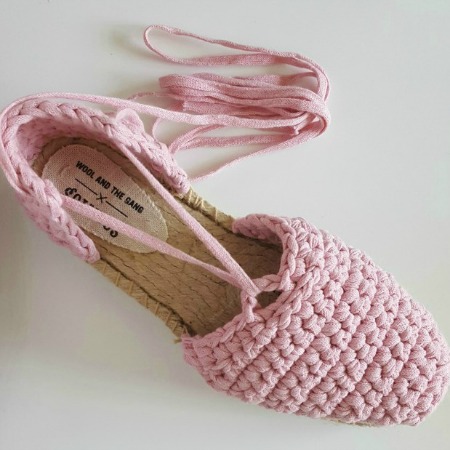With fiber contents that read: 100% Royal Alpaca, 100% Baby Llama, or 70% Baby Llama & 40% Mulberry Silk, it’s no wonder ILLIMANI yarns are so lovely to crochet with. Add to this a very reasonable price tag, and the fact that these yarns are responsibly sourced, and you’ll feel great about your choice.
The man behind ILLIMANI is Alvaro Echazu. Alvaro was born in La Paz, Bolivia, and now lives in Montreal, Canada. Alvaro came to Canada in 2000 after he finished university. It was to be a 3 month visit to discover the country and take an English course in Ottawa, but he liked Canada so much that he decided to stay. In 2002, he moved to Montreal.
Alvaro loves the city and loves that Montreal has given him the opportunity to launch his business. Each year during the cold, cold months of winter, Alvaro and his wife start thinking about moving to warmer shores, but come summer those plans are always forgotten.
ILLIMANI was founded in 2004 with the creation of a line of hand-made alpaca, llama, and pima cotton clothing. A large part of this collection was produced by fair trade artisanal companies in Bolivia and Peru. Unfortunately, many of ILLIMANI’s clients were high-end luxury shops in the United States, so the 2008 financial crisis had a huge negative impact on the company. Alvaro took a hit, and then he took a break.
Two years later, Illimani was revived to work with non-profit organizations that help and support artisan workers in Bolivia, focusing on source material rather than finished products. A few months later, the very first shipment Royal Alpaca arrived in Montreal.
Alvaro, why is it so important to you to work with Peruvian and Bolivian artisans?
I have always worked with small artisanal companies, especially those in Bolivia. I have imported to Canada not just clothing, but also different types of articles for decoration, and even musical instruments such as Andean flutes. With the first iteration of Illimani, I was very lucky that I could go several times a year to work on the development of the collections with the artisans, while staying with my family in the same house where I grew up and lived until I came to Canada.
I know these artisans very well. They are probably the most talented in South America, but unfortunately it is very hard for them to get noticed. They usually have to deal with agents and intermediaries that end up making all the profits. Some of these artisans have done clothing for famous designers without being compensated or recognized in a fair way.
This past April a group of 10 artisans came to Montreal and Toronto to learn about the Canadian market, visit some stores, and meet with buyers. I am very fortunate to be part of this project that is having positive results.
How did you come to the world of fiber, crochet, and knitting?
I have been around knitters and crocheters all my life. My grandma lived with us, and was always knitting and crocheting. She crocheted some beautiful tableware, bedcovers, and other things that we use for special days.
For the past 15 years of my life, working in the fashion and apparel business, I’ve found myself giving instructions to knitters, crocheters, and designers. I do not knit or crochet myself, but I really understand yarn and what can be done with it!
Tell me more about how the yarns are sourced?
Obviously it all starts with the Alpaca and Llama breeders in Bolivia and Peru. They classify the fiber and sell it in the markets. The Royal Alpaca and Baby Llama are not regular fibers: both have a de-hairing process that is proprietary to factories in Bolivia. The selection of the fiber is very rigorous and key to achieving the high quality that ILLIMANI Yarns have.
One of the hardest parts is to choose the right colours and to have them dyed just right. When introducing yarns I spend most of my time choosing colours and working with the dyers to get exactly what I want. New yarns almost always come late because of this dying process. New shades are studied and reviewed many times, the result being that so far all of the ILLIMANI colours have been a success. Large manufacturers are constantly copying our colours, which is why new ones now come a little later in the season.
What comes next for ILLIMANI?
I want ILLIMANI to continue to be recognized not just for the quality of its products, but also for its integrity.
The challenge will be to continue having a nice line of quality yarns and maintain the same level of attention to all clients. The good news is that large retail chains like Walmart or Michaels have not gotten into this space with equivalent yarns, and that makes the yarn world even more extraordinary. Small shops are usually locally owned. Owners and the knitting and crochet community are very social people and love to be around each other, to have knitting groups, parties, or just sit to crochet or knit together.
ILLIMANI will introduce more yarns in the near future, and then we’ll want to grow outside of Canada, while never become boring or impersonal.
Nice yarns that are boring are not nice anymore.
Find out more :
Website – Find a shop










